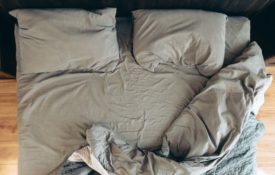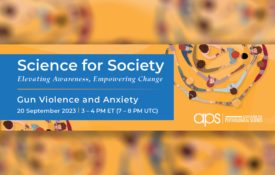-
The Climate Crisis Is Driving People to Substance Abuse
KAMAL SONAVANE KNEW she’d pass out if she chewed smokeless tobacco one more time. It was a scorching April afternoon in the middle of another of India’s brutal heat waves, and with no job to go to, the farmworker had already chewed tobacco five times that day. “Even an addicted person avoids doing this in extreme heat because there’s a risk of fainting,” she says. Yet Sonavane repeated the familiar ritual: adding the slaked lime to the tobacco leaves, then putting the mixture in her mouth. “I would have anyway collapsed, either because of the heat waves or the mounting stress,” she says, sitting in her two-room brick house in Bhadole in the Indian state of Maharashtra.
-
Brain Scans Reveal That Loneliness Changes the Way We View the World
Humans are meant to be around one another. It’s been that way for millennia. We needed each other to hunt, construct homes, procreate, care for our offspring and protect one another against the saber-toothed tigers and dire wolves that meant to harm us. We also need each other to be happy and to take up the burdens that sometimes weigh us down. All told, being a human is exceedingly difficult when life is lived alone. Research shows that socialization is so engrained in our survival that when we’re lonely, it has both psychological and physical effects on us. It even impacts our brains. ...
-
Your Brain Looks for ‘Winning Streaks’ Everywhere—Here’s Why
Basketball players, coaches, and fans agree: a person is more likely to make a shot after they’ve successfully completed one or multiple consecutive shots than after they’ve had a miss. Players therefore know to “feed” the teammate who’s “hot.” Coaches know to bench the one who’s not. This understanding is dittoed for the batter who’s on a hitting streak, the poker player who’s drawing strong hands and the stock picker who has a run of soaring successes. In life, as in sports, it pays to go with the hot hand.
-

Psychological Aspects of Erectile Dysfunction Deserve More Attention, Health Scientists Say
Personality traits and mental health problems are among the factors linked to erectile dysfunction, a condition that affects up to 80% of men over the age of 60. But researchers often overlook these psychological causes and their treatments in favor of biological components, according to a recent article in Current Directions in Psychological Science.
-

Myth of Male “Superior Math Ability” Hinders Female Students’ Math Performance
Increased exposure to peers who believe that boys are innately superior at math can erode girls’ mathematics performance over the course of the academic year, new research in Psychological Science suggests.
-

Science for Society: Insights from Psychological Science on Gun Violence and Anxiety
In the first webinar of APS’s Science for Society series on September 20, 2023, scientists and advocates shared their expertise and perspectives on the relationship between gun-violence and anxiety.

